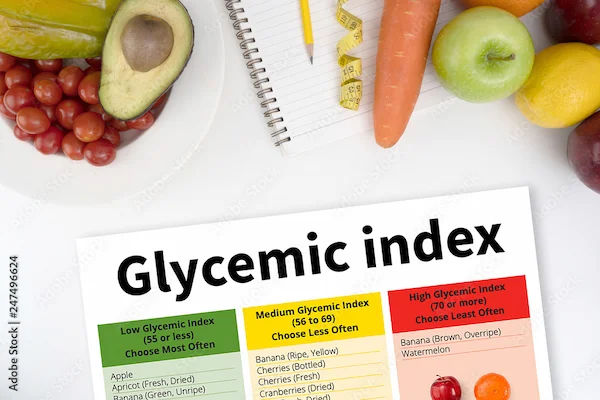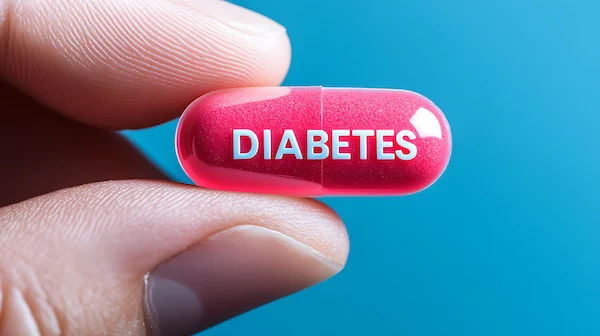Effective Strategies for Sugar Control
Know the effective strategies for sugar control, why it matters, common symptoms, effective strategies for control in detail and more.


Introduction
Managing blood sugar levels is crucial for overall health, especially for people with diabetes or those at risk of developing it. High blood sugar, if left uncontrolled, can lead to serious complications like heart disease, kidney damage, and nerve problems. The good news is that with the right strategies, you can manage your sugar levels effectively and lead a healthy life.
This article will guide you through simple, practical ways to control your sugar levels effectively.
Understanding Blood Sugar and Why It Matters
Blood sugar (or glucose) is the main source of energy for your body. It comes from the food you eat, especially carbohydrates. Insulin, a hormone produced by the pancreas, helps glucose enter your cells to be used for energy.
When your body doesn’t produce enough insulin or becomes resistant to it, glucose builds up in the blood, leading to high blood sugar (hyperglycemia). Over time, this can damage organs and cause complications.
Common Symptoms of High Blood Sugar
The common symptoms of high blood sugar include:
Frequent urination
Increased thirst
Fatigue
Blurred vision
Slow-healing wounds
Frequent infections
If you experience these symptoms, it’s important to check your blood sugar levels and consult a doctor.
Consult a Top sugar specialist for the best advice
Effective Strategies for Sugar Control
1. Eat a Balanced Diet
What you eat plays a major role in managing blood sugar. Here’s how you can make better food choices:
Choose Low Glycemic Index (GI) Foods – Foods with a low GI release sugar slowly, preventing spikes. Examples: whole grains, oats, lentils, and non-starchy vegetables.
Increase Fibre Intake – Fibre slows sugar absorption. Include fruits (like apples, berries), vegetables, nuts, and seeds in your diet.
Limit Refined Carbs & Sugary Foods – Avoid white bread, sugary drinks, sweets, and processed snacks.
Eat Healthy Fats & Proteins – Foods like fish, eggs, nuts, and avocados help stabilise blood sugar.
2. Stay Active
Exercise helps your muscles use glucose for energy, lowering blood sugar levels. Aim for:
- 30 minutes of moderate exercise (walking, cycling, swimming) at least 5 days a week.
Strength training (2-3 times a week) to improve insulin sensitivity.
Short walks after meals to prevent sugar spikes.
3. Monitor Blood Sugar Regularly
Checking your blood sugar helps you understand how food, exercise, and medications affect your levels.
Use a glucometer at home.
Keep a log to track patterns.
Consult your doctor for target ranges.
4. Stay Hydrated
Drinking enough water helps kidneys flush out excess sugar. Avoid sugary drinks—opt for water, herbal teas, or infused water with lemon/cucumber.
5. Get Enough Sleep
Poor sleep affects insulin sensitivity and can raise blood sugar. Aim for 7-9 hours of quality sleep per night.
6. Manage Stress
Stress hormones (like cortisol) increase blood sugar. Try:
Deep breathing exercises
Yoga or meditation
Engaging in hobbies
7. Take Medications as Prescribed
If you’re on diabetes medication, follow your doctor’s advice strictly. Never skip doses without consulting them.
8. Avoid Smoking & Limit Alcohol
Avoid smoking and drinking alcohol because:
Smoking increases insulin resistance.
Alcohol can cause blood sugar spikes or drops—drink in moderation, if at all.
When to See a Doctor?
If you:
Frequently experience high or low blood sugar
Notice symptoms of diabetes
Need help adjusting your diet or medications
Final Thoughts
Controlling blood sugar is a lifelong commitment, but small, consistent changes can make a big difference. By eating right, staying active, monitoring your levels, and managing stress, you can keep your sugar in check and reduce health risks.
Consult a Top sugar specialist for the best advice
Consult a Top sugar specialist for the best advice

Dr Syed Mateen Pasha
General Physician
2 Years • MBBS
Bengaluru
PRESTIGE SHANTHINIKETAN - SOCIETY CLINIC, Bengaluru
Dr.rohit Afroz
General Physician
2 Years • MBBS.,MD (General Medicine)
Hyderabad
Apollo Sugar Clinic alkapuri colony, Hyderabad

Dr. Dhanraj K
General Physician/ Internal Medicine Specialist
25 Years • MBBS, MD Internal Medicine - Osmania Medical College, Hyderabad
Hyderabad
Apollo Hospitals Jubilee Hills, Hyderabad
(375+ Patients)

Dr Bhargav Vuppumalla
General Physician/ Internal Medicine Specialist
5 Years • MBBS MD GENERAL MEDICINE
Bengaluru
Apollo Medical Center, Marathahalli, Bengaluru

Dr. Zulkarnain
General Physician
2 Years • MBBS, PGDM, FFM
Bengaluru
PRESTIGE SHANTHINIKETAN - SOCIETY CLINIC, Bengaluru



